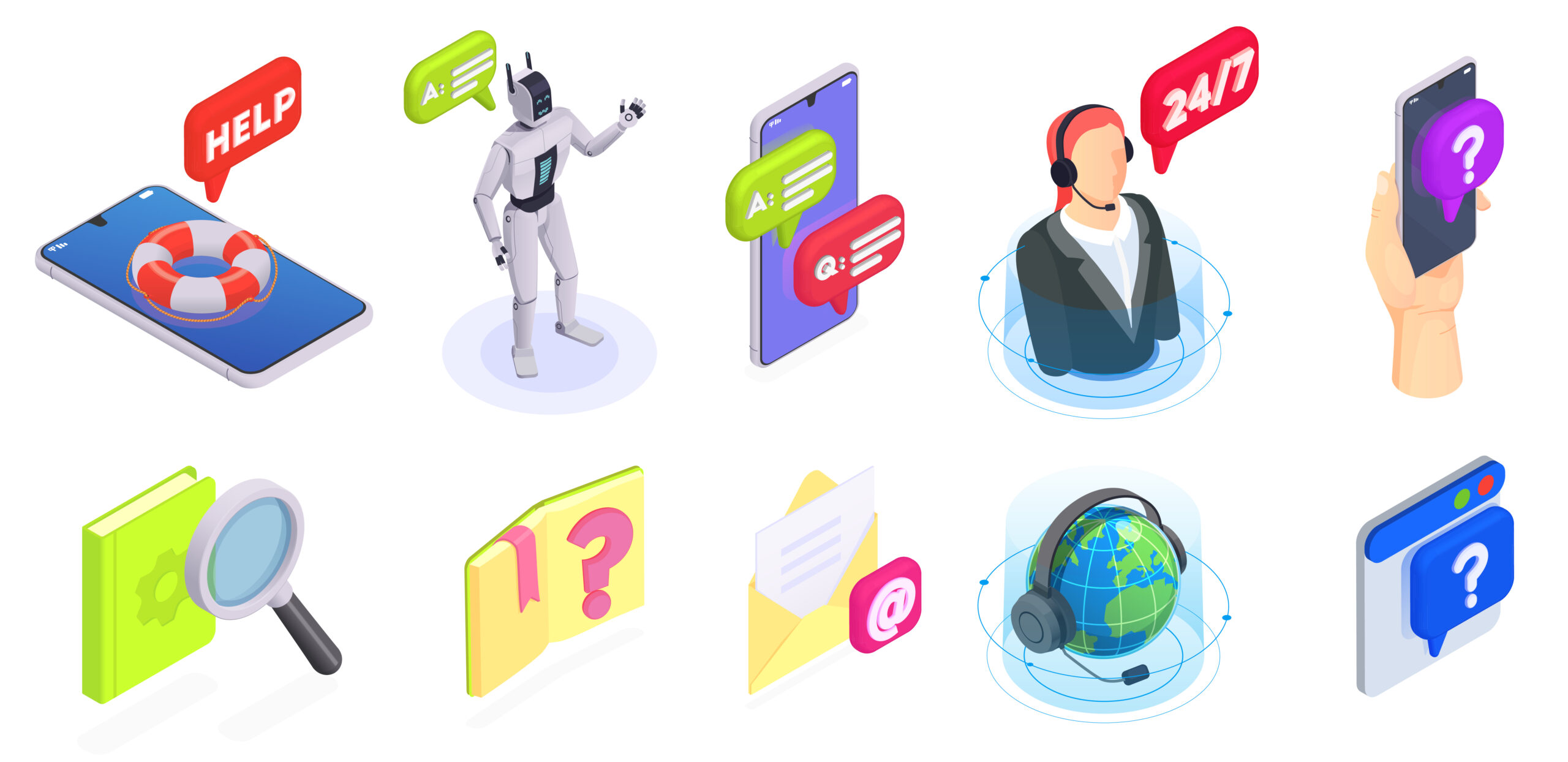
Artificial Intelligence (AI) has become a cornerstone in revolutionizing customer care. You can witness its transformative power as it enhances service efficiency and quality. Statistics reveal that 74% of consumers believe AI will boost customer service efficiency, while 73% expect more AI interactions to improve service quality. For modern businesses, integrating AI is not just beneficial; it’s essential. AI for customer care delivers fast, personalized experiences, meeting the high expectations of today’s consumers. Embrace AI to stay ahead and provide exceptional service.
Understanding AI for Customer Care

Definition and Scope
What is AI in customer care?
AI in customer care refers to the use of artificial intelligence technologies to enhance and streamline customer service processes. You can see AI-driven customer service in action through chatbots, virtual assistants, and automated response systems. These tools help businesses provide quick and accurate support, reducing the need for human intervention in routine inquiries.
Scope and potential of AI technologies
The scope of AI technologies in customer care is vast. AI-driven customer service can handle everything from answering simple questions to analyzing complex data patterns. Integrating AI allows you to automate workflows, optimize routing, and suggest pre-written responses. This not only speeds up service but also ensures consistency and accuracy.
Benefits of AI Integration
Enhanced efficiency and productivity
AI integration significantly boosts efficiency and productivity. By automating routine tasks, you free up human agents to focus on more complex issues. This leads to faster support and optimized workflows. Studies show that AI minimizes human errors and improves accuracy, which enhances overall service quality.
Improved customer satisfaction and experience
AI-driven customer service plays a crucial role in improving customer satisfaction. By providing instant responses and personalized interactions, AI enhances the customer experience. Research indicates a significant increase in customer satisfaction scores after implementing AI solutions. You can build stronger client relationships and gain a competitive edge in the market.
Changes Brought by AI
Automation of routine tasks
AI automates many routine tasks, such as ticket routing and order status inquiries. This automation allows you to provide faster support and reduces wait times for customers. AI can also analyze ticket context and summarize information for agents, making their jobs easier and more efficient.
Data-driven decision making
AI empowers you to make data-driven decisions by analyzing customer interactions and sentiment. This analysis provides valuable insights into customer preferences and behaviors. By leveraging these insights, you can tailor your services to meet customer needs more effectively, ultimately boosting retention and loyalty.
Key Strategies for AI Integration
Implementing AI Chatbots
Role of chatbots in customer service
AI chatbots have become essential in modern customer service. They handle routine inquiries, freeing up human agents to focus on complex issues. By providing instant responses, chatbots enhance customer satisfaction and streamline service processes. In the hospitality industry, for example, chatbots have improved customer service operations, reduced costs, and boosted efficiencies. You can leverage chatbots to offer 24/7 support, ensuring that your customers receive timely assistance. AI chatbots have become essential
Best practices for chatbot deployment
To maximize the effectiveness of chatbots, follow these best practices:
Define clear objectives: Identify what you want your chatbots to achieve, such as reducing wait times or improving customer satisfaction.
Integrate with existing systems: Ensure seamless integration with your current customer service tools and platforms.
Continuously update: Regularly train your chatbots to adapt to changing customer behaviors and preferences.
Monitor performance: Use analytics to assess chatbot effectiveness and make necessary adjustments.
Personalization through AI
Using AI for personalized customer interactions
AI for customer care allows you to create personalized experiences by analyzing customer data. By understanding individual preferences, you can tailor interactions to meet specific needs. This personalization fosters loyalty and enhances customer experiences. AI-powered customer service tools can recommend products based on past purchases, making your brand stand out.
Techniques for effective personalization
To achieve effective personalization, consider these techniques:
Leverage customer data: Use insights from customer interactions to customize responses and offers.
Implement dynamic content: Adjust content based on real-time customer behavior and preferences.
Utilize AI-driven analytics: Analyze trends and patterns to refine your personalization strategy.
AI-Driven Analytics
Leveraging AI for customer insights
AI-driven analytics provide valuable insights into customer behavior and preferences. By analyzing interactions, you can identify trends and areas for improvement. This data-driven approach helps you make informed decisions, enhancing your customer care strategy. AI for customer care empowers you to transform customer service by offering targeted solutions. AI-driven analytics provide valuable insights
Tools and technologies for AI analytics
Several tools and technologies can help you harness AI analytics:
Sprout Social: This platform offers insights into social media interactions, helping you understand customer sentiment.
Knowledge Management systems: These systems organize and analyze customer data, providing actionable insights.
AI-driven Customer Service strategy tools: These tools enable you to optimize your service processes and improve customer experiences.
By integrating these strategies, you can elevate your customer service and stay ahead in the competitive landscape. Embrace AI to transform your customer care teams and deliver exceptional service.
Challenges and Considerations
Ethical and Privacy Concerns
Addressing data privacy issues
You must prioritize data privacy when integrating AI into customer care. AI systems often handle sensitive customer information, making data security crucial. Implement robust encryption and access controls to protect this data. Regular audits and compliance with regulations like GDPR ensure that you maintain customer trust.
Ensuring ethical AI use
Ethical AI use involves transparency and fairness. You should ensure that AI algorithms operate without bias. Regularly review and update these algorithms to prevent discrimination. Transparency in AI processes builds trust. Clearly communicate how AI decisions are made and provide options for human oversight when necessary.
Integration and Implementation Challenges
Overcoming technical barriers
Technical barriers can hinder AI integration. You need to assess your existing infrastructure and determine compatibility with AI technologies. Invest in training for your team to handle AI tools effectively. Collaborate with AI experts to address any technical challenges and ensure smooth implementation.
Aligning AI with business goals
Aligning AI with your business goals is essential for success. Define clear objectives for AI integration, such as improving customer satisfaction or reducing response times. Regularly monitor AI performance and gather feedback to ensure it meets your goals. Adjust strategies as needed to maximize the benefits of AI in customer care.
Future Trends in AI and Customer Care

Emerging Technologies
AI advancements on the horizon
AI for customer care continues to evolve, bringing new technologies that promise to transform how you interact with customers. Innovations like natural language processing and machine learning are enhancing AI’s ability to understand and respond to complex queries. These advancements enable AI systems to provide more human-like interactions, improving the overall customer service experience.
The impact on customer care is profound. AI-driven solutions can automate workflows, optimize support processes, and enhance efficiency by routing requests and suggesting responses. This leads to faster response times and higher customer satisfaction. By integrating these technologies, businesses can offer personalized and efficient service, fostering loyalty and repeat business.
The impact of these technologies on customer care is profound. AI-driven solutions can automate workflows, optimize support processes, and enhance efficiency by routing requests and suggesting responses. This leads to faster response times and higher customer satisfaction. By integrating these technologies, businesses can offer personalized and efficient service, fostering loyalty and repeat business.
Long-term Implications
Future of AI in customer service
The future of AI in customer service looks promising. AI will continue to play a crucial role in delivering fast, personalized, and human-like experiences. As AI systems become more sophisticated, they will handle more complex tasks, allowing live customer service agents to focus on building deeper relationships with customers. This shift will enhance overall satisfaction and loyalty.
Preparing for upcoming changes
To prepare for these changes, you should invest in training your teams to work alongside AI tools effectively. Understanding how to leverage AI for customer insights and support will be essential. Implementing a strong data management strategy ensures that AI systems have access to quality knowledge for decision-making. By staying informed about emerging trends, you can adapt and thrive in the evolving landscape of customer care.
Incorporating AI into customer care offers numerous benefits. You can enhance efficiency, personalize interactions, and gain valuable insights. These strategies transform customer service, making it more responsive and effective. JKL Corp highlights that AI significantly boosts customer satisfaction scores, underscoring its positive impact.
“These studies have revealed a significant increase in customer satisfaction scores, indicating the positive impact of AI on customer experiences.” — JKL Corp
AI is not just a trend; it’s a necessity for modern businesses. Embrace AI integration to stay competitive and deliver exceptional service.
See Also
Implementing AI for Customer Support: A Detailed Guide
Boost Service with AI: Enhancing Customer Engagement
Unleashing Superior Customer Service: NLP in AI Conversations



